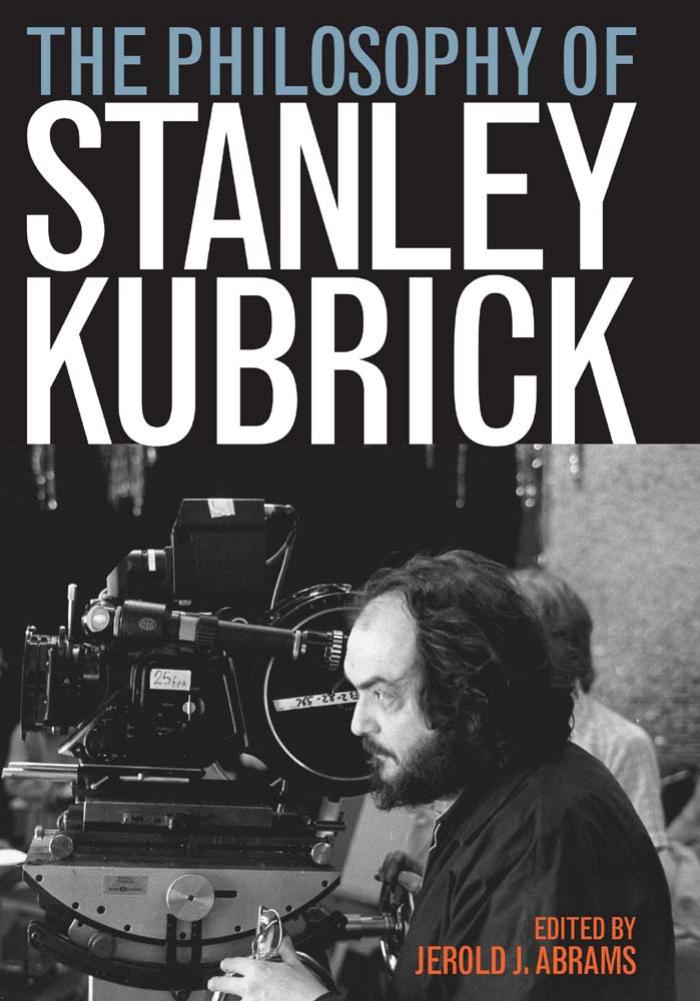The Philosophy of Stanley Kubrick by Jerold J. Abrams

Author:Jerold J. Abrams [Abrams, J. Jerold]
Language: eng
Format: epub, pdf
ISBN: 978-0-8131-7256-9
Publisher: The University Press of Kentucky
Published: 2007-07-03T16:00:00+00:00
The Skeptical Tropes of Stanley Kubrick
In a revealing 1968 interview with Eric Nordern for Playboy, we find Kubrick invoking several modes of argument commonly employed by Hellenistic philosophers. Tropes involving either size or distance, or ones involving duration and death, figure prominently in his thinking: “If man merely sat back and thought about his impending termination, and his terrifying insignificance and aloneness in the cosmos, he would surely go mad, or succumb to a numbing sense of futility. Why, he might ask himself, should he bother to write a great symphony, or strive to make a living, or even to love another, when he is no more than a momentary microbe on a dust mote whirling through the unimaginable immensity of space?”9 Compare Kubrick’s observations on the futility of human existence with what David Hume wrote in the voice of an ancient Skeptic: “It is certain, were a superior being thrust into a human body, that the whole of life would to him appear so mean, contemptible, and puerile, that he never could be induced to take part in any thing, and would scarcely give attention to what passes around him.”10
These weighty remarks should not stun us with their wisdom. If worth is measured by size and duration, then dwarfs and toddlers beware. What matters is not quantity but the form of existence: the important difference between people and microbes is not one of size. Besides, why doesn’t our being alone in the cosmos—assuming that we are—make us more significant? It is not only life’s brevity that supposedly makes it insignificant; death—whenever it comes—cancels all hope for meaning. For Kubrick, our unique capacity to project into the future is our undoing: “Man is the only creature aware of his own mortality and is at the same time generally incapable of coming to grips with this awareness and all its implications…. In each man’s chest a tiny ferret of fear at this ultimate knowledge gnaws away at his ego and his sense of purpose.”11 Here Kubrick finds a source of the banality—or worse—of human life. That life matters is an appearance that the skeptic sees through. Hume reminds us that “death, though perhaps they receive him differently, yet treats alike the fool and the philosopher.”12 Seneca writes, “In the ashes all men are leveled. We’re born unequal, we die equal.”13 Barry Lyndon’s epilogue, looking back in time, ends with a similar sentiment about the main characters of the story: “They are all equal now.” Skeptics use such tropes to convince us that our judgments of value are wholly subjective, while Stoics use them to convince us of the triviality of our temporal concerns.
Download
The Philosophy of Stanley Kubrick by Jerold J. Abrams.pdf
This site does not store any files on its server. We only index and link to content provided by other sites. Please contact the content providers to delete copyright contents if any and email us, we'll remove relevant links or contents immediately.
| Anthropology | Archaeology |
| Philosophy | Politics & Government |
| Social Sciences | Sociology |
| Women's Studies |
The remains of the day by Kazuo Ishiguro(8969)
Tools of Titans by Timothy Ferriss(8363)
Giovanni's Room by James Baldwin(7325)
The Black Swan by Nassim Nicholas Taleb(7106)
Inner Engineering: A Yogi's Guide to Joy by Sadhguru(6785)
The Way of Zen by Alan W. Watts(6600)
Asking the Right Questions: A Guide to Critical Thinking by M. Neil Browne & Stuart M. Keeley(5757)
The Power of Now: A Guide to Spiritual Enlightenment by Eckhart Tolle(5748)
The Six Wives Of Henry VIII (WOMEN IN HISTORY) by Fraser Antonia(5496)
Astrophysics for People in a Hurry by Neil DeGrasse Tyson(5181)
Housekeeping by Marilynne Robinson(4436)
12 Rules for Life by Jordan B. Peterson(4299)
Double Down (Diary of a Wimpy Kid Book 11) by Jeff Kinney(4261)
Ikigai by Héctor García & Francesc Miralles(4243)
The Ethical Slut by Janet W. Hardy(4242)
Skin in the Game by Nassim Nicholas Taleb(4236)
The Art of Happiness by The Dalai Lama(4125)
Skin in the Game: Hidden Asymmetries in Daily Life by Nassim Nicholas Taleb(3987)
Walking by Henry David Thoreau(3952)
